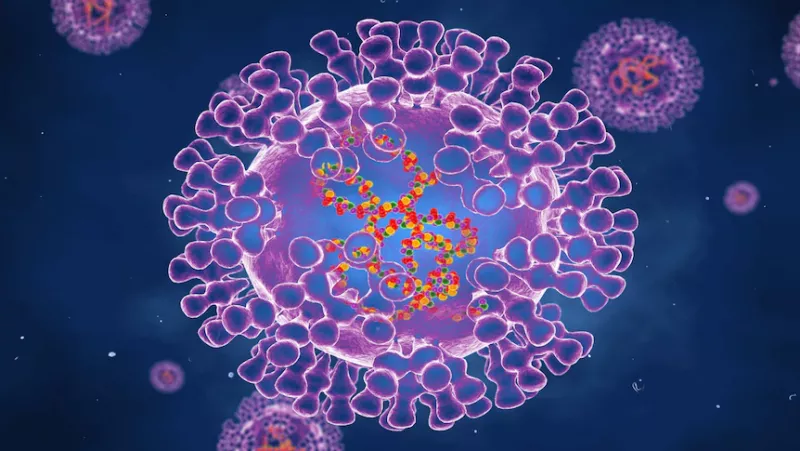Scientists urge health officials to rename monkeypox because of discriminatory overtones.
The World Health Organization (WHO) says it is working with experts to officially rename monkeypox, amid concerns over stigma and racism around the "discriminatory" name of the virus.
WHO Director-General Tedros Adhanom Ghebreyesus announced on Tuesday morning that the organisation was "working with partners and experts from around the world on changing the name of monkeypox virus, its clades [strains] and the disease it causes."
Mr Ghebreyesus said the WHO would make announcements about the new names as soon as possible.
The decision comes less than a week after more than 30 international scientists wrote in a position paper that there was an "urgent need" for a "non-discriminatory and non-stigmatising nomenclature for monkeypox virus".
Space to play or pause, M to mute, left and right arrows to seek, up and down arrows for volume.
"Monkeypox on a different scale to COVID-19" says infectious diseases expert.
Currently, the WHO lists two strains, or "clades", of the virus monkeypox on its website: the West African clade and the Congo Basin (Central African) clade.
However, like many previous geographic labels of infectious diseases based on locations of first detection, that can be misleading and inaccurate, according to the group of scientists from Africa and around the world.
In their proposal, they proposed a novel classification of monkeypox that aligns with best practice in naming of infectious diseases, in a way that "minimises unnecessary negative impacts on nations, geographic regions, economies and people and that considers the evolution and spread of the virus".
More than 1,600 cases of the virus have been reported this year in 39 countries.
How did monkeypox first appear in the US?
On Tuesday, Mr Ghebreyesus said he decided to convene an emergency committee on June 23 because the virus has shown "unusual" recent behaviour by spreading in countries well beyond parts of Africa where it is endemic.
"We believe that it needs also some coordinated response because of the geographic spread," he told reporters.
More than 1,600 cases and nearly 1,500 suspected cases have been reported this year in 39 countries, including seven nations where the virus has been reported for years.
A total of 72 deaths have been reported, but none of these have been in newly affected countries, which include Britain, Canada, Italy, Poland, Spain and the United States.




